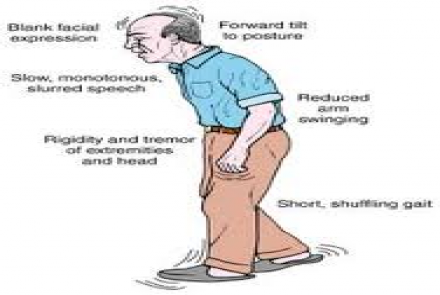Caregiving is a challenging job. Depending on the severity of the condition, you have to be prepared to do the following:
Accompany the person with Parkinson’s disease for their medical appointments
Install safety features around the house
Get additional help if you are not around to monitor and assist the patient
Additionally, remember that a good relationship and communication with the patient keeps them and you happier and healthier.
Look after your own health and mental wellbeing.…
Latest Stories
- Living with Parkinson’s disease Everyday activities can be a challenge. You can still do things but you may have to tackle it in a different way. Here are some ideas: Plan your daily activities ahead of time Do not do many things in one day Space your work throughout the day Simplify your tasks Plan periods of rest everyday If you become tired during an activity, stop and rest Avoid extreme physical activities Do not plan activities immediately after a meal. Rest after a meal Get dressed…
- Can Parkinson’s disease be fatal? Parkinson’s disease is not considered fatal. Patients cannot perform daily movement tasks unaided due to gradual worsening of symptoms, thus there is decrease in quality of life. They can however suffer complications like dysphagia. Find out how to deal with early stages of Parkinsons: http://www.patientsengage.com/conditions/early-stage-parkinsons-dealing-diagnosis
- Currently there are no treatment options available for complete cure of Parkinson’s, but supportive, medical and surgical options are available to manage the symptoms and maintain quality of life. Supportive Therapy: Depending on your condition, physical activities like walking, swimming, dance, yoga, physiotherapy play an important role in improving the quality of life. These can be done under a trained therapist. Medical Therapy: Most commonly used medication is levodopa, and Sinemet (a…
- Diagnosing Parkinson’s There is no specific test to identify Parkinson’s and it is difficult to diagnose especially in the early stages. The doctor will take note of your medical and neurological history and ask you to perform certain movements and tasks, which is part of the neurological exam. If you have had two of the four main symptoms for a while, the doctor may lean towards a diagnosis of Parkinson’s. Parkinson’s disease must be differentiated from Lewy body dementia as there is common…
- Who is at risk of developing Parkinson’s disease? In spite of much research, the cause of Parkinson’s is still unknown. Risk factors include the following: Most common in old age, above 60 years More common in men More common when there’s a family history of the disease People exposed over long periods to certain chemicals and pesticides used to kill weeds and fungus People with prolonged exposure to manganese, such as in steel industries
- Symptoms vary from person to person. Four main movement related symptoms are: Tremors: Shaking or back and forth movements of hands and legs. Can affect jaws and head in severe condition. Occurs only during rest. Postural Instability: Difficulty balancing in sitting or standing position. Increased risk of falling. Bradykinesia: Slowness of movement, speech difficulty, slowness and difficulty in doing simple tasks like buttoning shirt, brushing teeth. Muscular Rigidity: Stiffness of muscles in…
- Dopamine is a Brain Chemical that helps to control muscle movement. In Parkinson's Disease the brain cells that make dopamine slowly die. The resultant lack of dopamine in body leads to physical symptoms such as slowness of movement, unusual stiffness in body, tremors and loss of balance. Depression, anxiety, constipation, speech-swallowing problems are some of the many other affections of Parkinson's Disease.
- Tips to prevent stress Positive attitude: See the upside of the situation Breathing exercises: Do pranayama Try meditation Time management: Prioritise your actions so you are not swamped with work. Always leave time to some things you enjoy. Make a “to do” list Get enough sleep: 8 hours minimum Diet: Eating healthily helps the body cope better with stress. Exercise is enormously helpful in reducing stress. It fills you up with feel-good endorphins, takes your mind…












